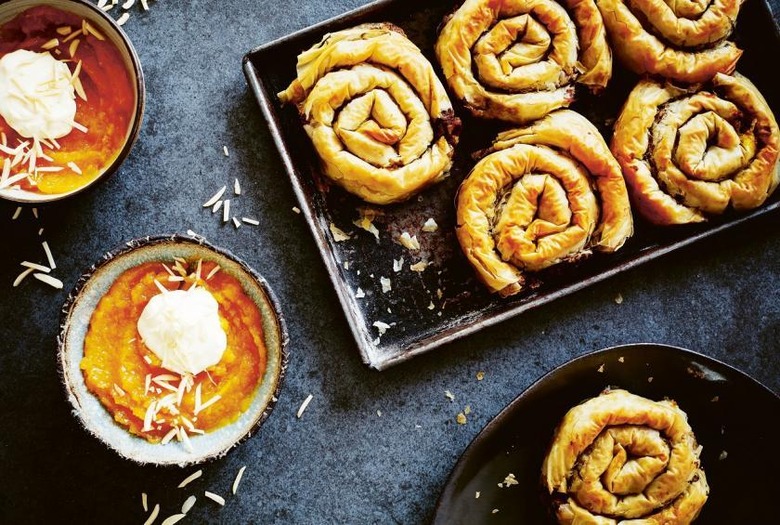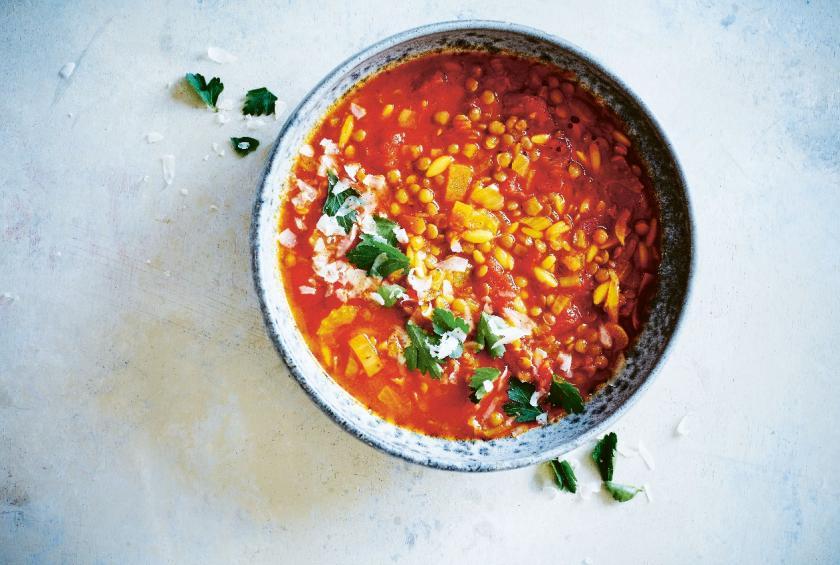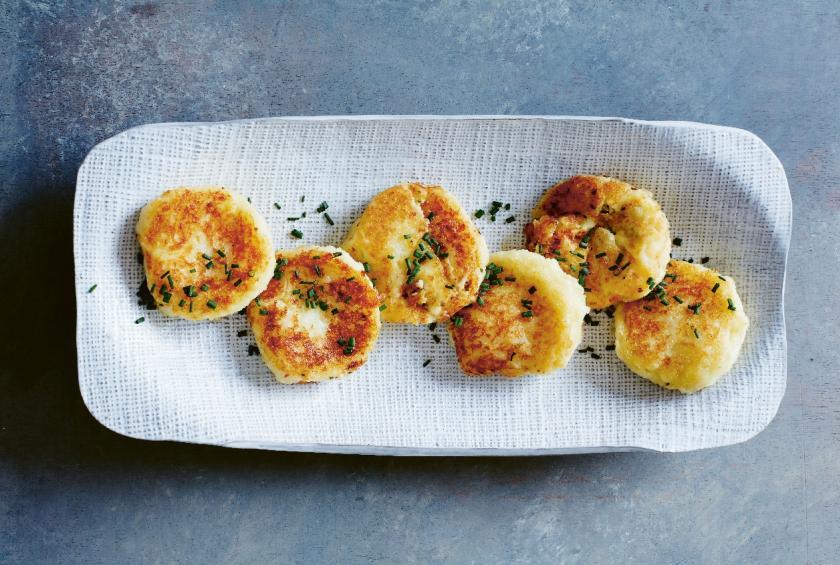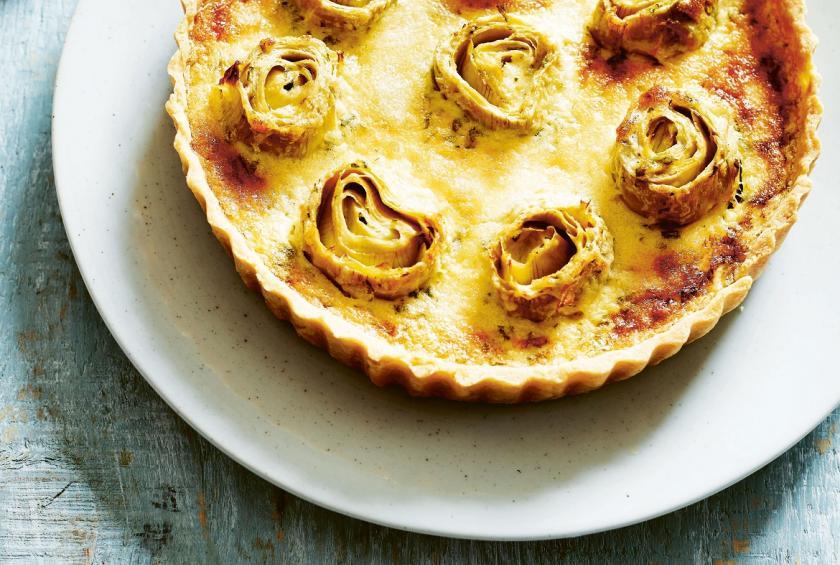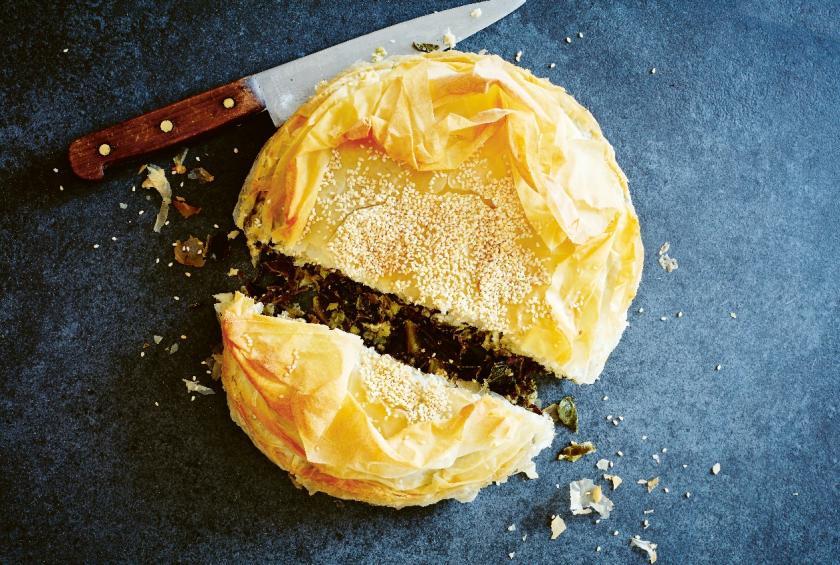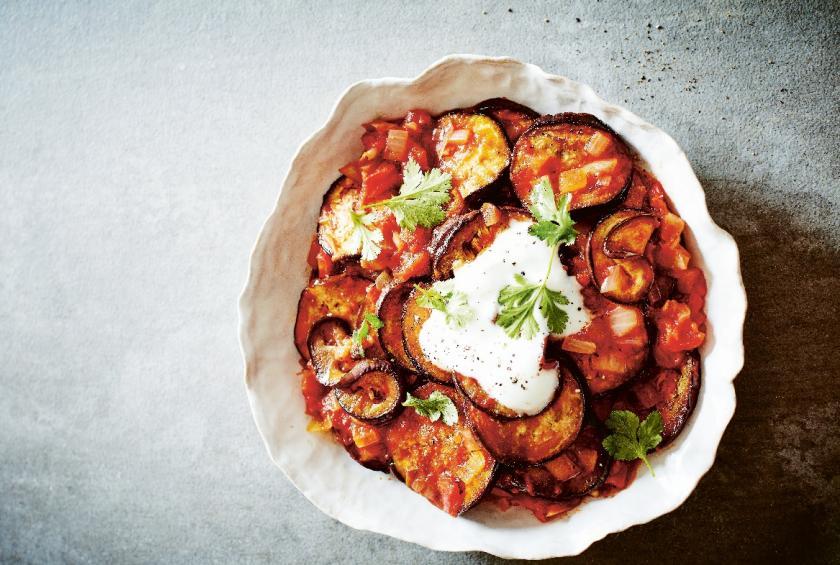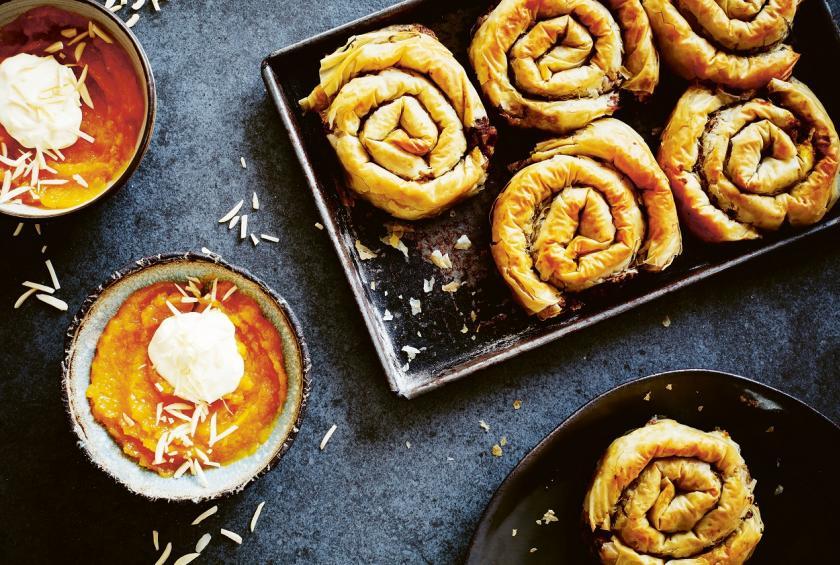Hazana: Jewish Vegetarian Cooking
We may receive a commission on purchases made from links.
Paola Gavin is an acclaimed food writer, with three other published cookbooks that center around vegetarian cooking in different countries. Her latest book, Hazana: Jewish Vegetarian Cooking, looks at the cultural heritage of Jewish people from around the world. "Over their two thousand years of exile, Jews migrated across the world, taking their culinary heritage and traditions with them. Wherever they went, they adapted local and regional dishes to fit their own strict dietary laws and, as a result, Jewish food today encompasses an enormous variety of cuisines and cooking styles."
The book begins with an introduction to the foods eaten during major Jewish holidays and goes on to illustrate the history of Jewish food and its evolution, which is diverse and "entwined with the history and culture of the countries Jews settled in before and after the diaspora." Gavin explores the legacy across 20 different counties, including Austria, Egypt, Hungary, France, Iran, Germany, Romania, and more.
Recipes featured include:
— Potato Dumplings Stuffed With Curd Cheese and Chives
— Aubergines With Onions, Tomatoes, and Red chilies
To purchase Hazana: Jewish Vegetarian Cooking, click here.
What is your philosophy of cooking (and/or eating)?
I am passionate about food and health. Besides being a vegetarian, I like to eat very simply. I also think it is very important to balance your food properly and not eat too much acid-forming food. I always try to have plenty of portions of fruit and vegetables a day — which I find helps me stay well and avoid catching colds and flu.
How did it inspire the recipes you chose to include in this book?
I always try to find traditional recipes that are easy to prepare as well as good for your health. I also avoid choosing desserts and cakes that contain too much sugar.
What is your favourite recipe in the book and why?
That's not easy to choose. I love all the recipes made with filo pastry recipes, as they are so quick and easy to prepare. It's great to use when you have guests coming over for dinner. You don't have to spend hours in the kitchen and it never goes wrong. I use filo pastry to make all kinds of sweet and savoury pies like the Hungarian gombas retes (mushroom strudel), Greek pastel verde (green pie), rodanchas di kalavassa amarillia (sweet pumpkin coils) – which is perfect for Chanukah – and, of course, Austrian birnenstrudel (pear and walnut strudel).
What are some of the foods you can't live without?
I can't live without cold-pressed extra virgin olive oil — which I think is the best oil for your health — and nothing tastes as good. I also love dark green leafy vegetables — they are so rich in vitamins and minerals, they are like taking a vitamin pill. I also could not live without Parmesan — no other cheese compares.
Would you rather dine out or cook at home?
Truthfully, that depends what country I am in. In Italy or Greece I love to eat out and discover exciting new ways of preparing food. The produce there is also of superb quality. Otherwise I prefer eating at home. I like to know what I am eating — what oil is being is used, how much salt, etc.
What is your favorite go-to meal or drink?
One of my favourite dishes is parmigiana di melanzane (eggplant parmigiana). In the book I have included one of its many variations — pasticcio di melanzane which is made with layers of fried aubergines, tomato sauce, fontina cheese and a mixture of beaten eggs, milk, flour, and grated Parmesan — that is delicious.
How do you hope readers will use this book? What do you hope they take away?
I hope they will discover all kinds of simple, easy-to-prepare vegetarian dishes that they can make for themselves or when they have vegetarian friends and family come over for a family meal or a special occasion.
Is there anything else you'd like to share?
Yes, there is. Before I started writing this book I knew very little about Jewish history and culture. If you are English, it is taken for granted that you know something about your own history, but it's different if you are Jewish. Most Jews only know about what happened to their own families in the past hundred years or so. So, for me, it was fascinating to find out how Jews came to be living in different countries around the world, what they did there, and what food they prepared.. So I hope the reader will also discover a little more about Jewish history and culture.
